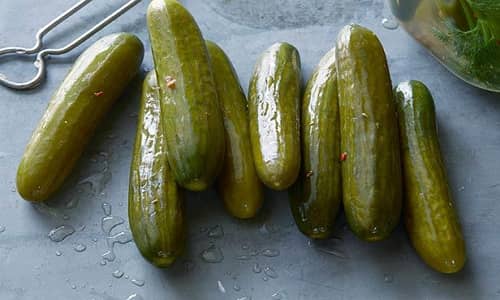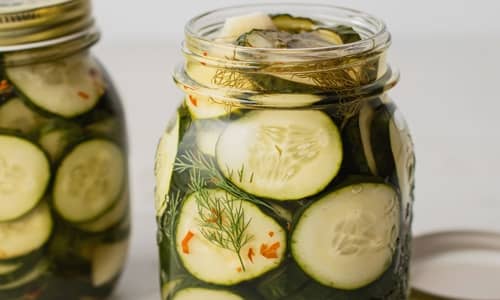Pickle Calorie, Benefits, How to Make?
Pickle Nutrition

| Pickle (100g) Nutrition | |||
| Carbohydrate | Protein | Fat | Calories |
| 3g | 0.3g | 0.2g | 12kcal |
| Main Nutrition | Vitamin A, Vitamin C, Minerals | ||
| Main Benefits | Control blood sugar levels and maintain body balance | ||
| Side Effects | Excessive intake may cause water loss | ||
Pickles are fat-free and low in calories, but they are also low in most other nutrients except sodium. But the main benefit of pickles is that some pickles contain beneficial bacteria. People use brine to make pickles. Salt water is water mixed with salt or an acid such as vinegar. Pickles act like probiotics, protecting the body’s microflora and supporting the growth of healthy bacteria in the intestines.
2. Pickle Benefits

1. Gastrointestinal health
Pickles act like probiotics, protecting the body’s microflora and supporting the growth of healthy bacteria in the intestines. The stomach contains millions of bacteria that help the body digest and absorb food. These bacteria help prevent yeast infections, help with diarrhea and constipation, and potentially aid in the treatment of chronic gastrointestinal health problems such as Crohn’s disease. Pickles are rich in probiotics, which can improve digestion and prevent mild stomach problems.
2. Blood sugar control
Pickling using a vinegar-based brine may help regulate blood sugar. Stable blood sugar levels can help prevent intense hunger. Consuming pickles also helps lower fasting blood sugar levels. Preventing fasting blood sugar and blood sugar spikes is also important for the health of people with diabetes. It can be a very good food for diabetes.
3. Antioxidant effect
Like all fruits and vegetables, pickles contain antioxidants. Antioxidants can block the effects of free radicals. Free radicals are chemicals in the body that can play a role in the development of a variety of health problems. These problems include cancer, inflammation, heart disease, and various chronic diseases. Free radicals can also contribute to aging. Pickles help prevent the effects of these free radicals.
4. Maintain body balance
Electrolytes maintain the body’s fluid balance and help keep all systems working. Pickles contain electrolytes in the form of a lot of sodium and some potassium and magnesium. So you can use pickles as natural electrolytes. Pickles help balance fluids in the body and can also help relieve muscle cramps caused by dehydration.
3. Pickle How to Make
4. Pickle Side Effect
- Pickles are high in sodium, so consuming too much can increase the risk of high blood pressure and heart disease.
- Pickles contain a lot of vinegar, which can cause ulcers if consumed regularly.
- Consuming too many pickles can cause water loss in the body due to the sodium.